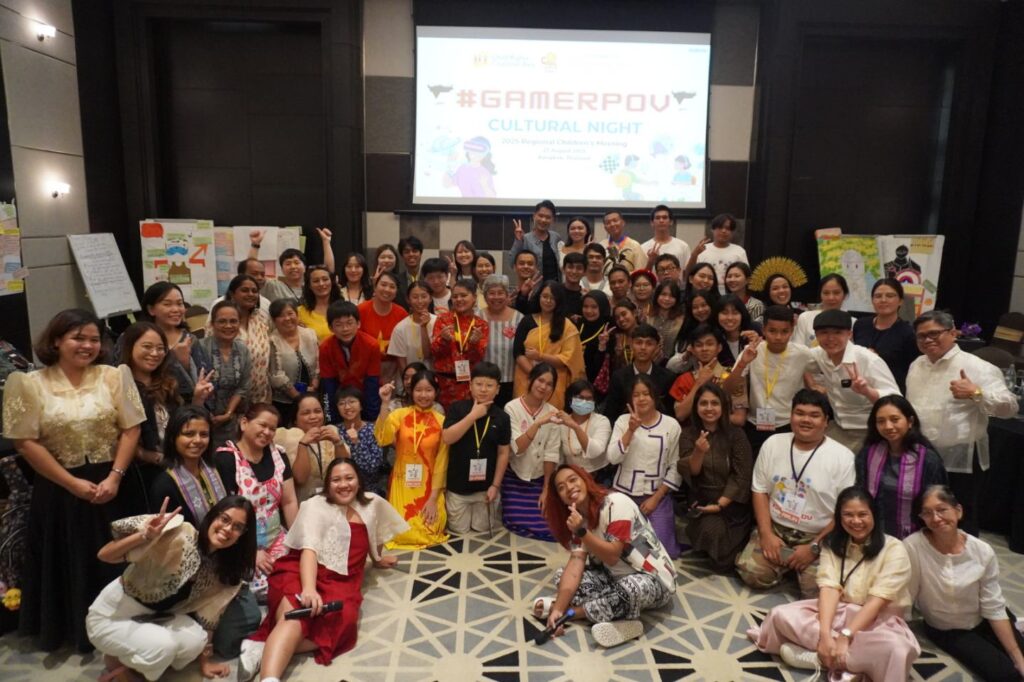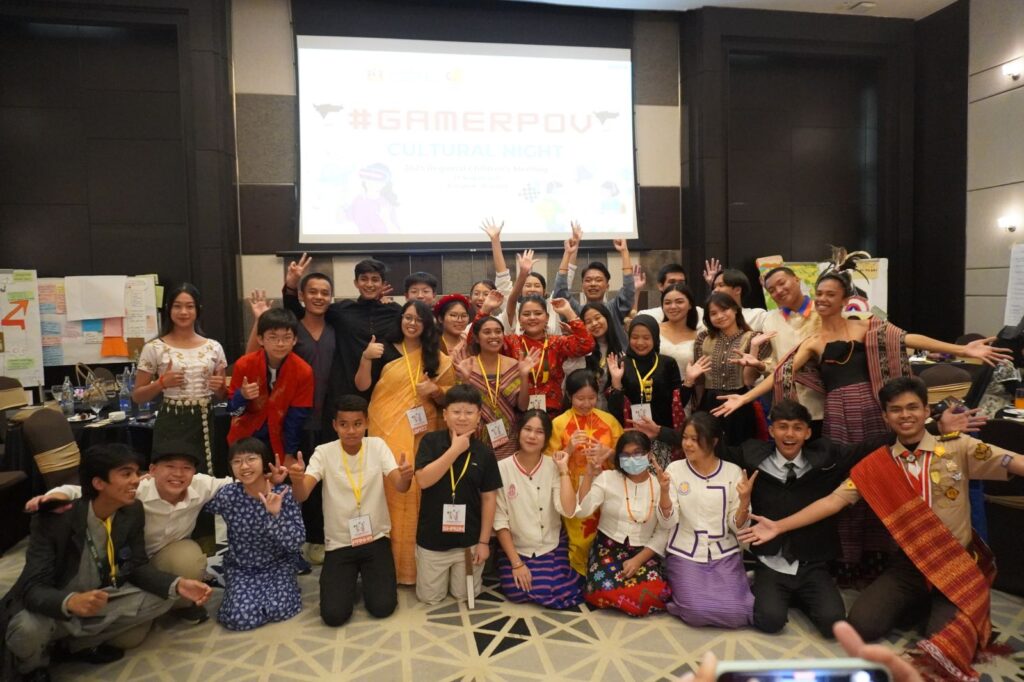More than 30 child delegates from across Asia gathered in Bangkok for #GamerPOV: Regional Children’s Meeting 2025, a three-day event that highlighted children’s perspectives on gaming and digital play at the center of policy conversations. Organized by CRC Asia together with Childline Thailand Foundation under the Step Up the Fight against Sexual Exploitation of Children Programme of the Down to Zero Alliance, the meeting created a space where children led discussions on how online gaming shapes their rights to play, expression, protection, and participation.
A regional platform for children’s voices
The meeting brought together 31 child delegates from 12 countries and territories—Bangladesh, Cambodia, Hong Kong, Indonesia, Malaysia, Myanmar, Nepal, Philippines, Singapore, South Korea, Thailand, Timor-Leste, and Vietnam—along with 19 adult mentors, facilitators, and organizers. All delegates were selected through a child-friendly and inclusive process ensuring diversity in gender, age, ability, and background.
Play as a right, not a privilege
Grounded in the UNCRC and its General Comments No. 17 (on the right to play) and No. 25 (on children’s rights in the digital environment), the meeting highlighted how online play is deeply connected to other rights, from protection and privacy to freedom of expression and cultural participation. Children spoke candidly about the realities of gaming:
- Opportunities: creativity, teamwork, identity, stress relief, and even career pathways through e-sports and streaming.
- Risks: toxic chat, harassment, scams, pay-to-win traps, privacy breaches, grooming, and discrimination.
As one delegate noted, “Games should be fun and safe. We want to play, but we also want to be protected.”
Children’s voices at the heart
From the very first session, children spoke openly about their gaming worlds—from Roblox to Valorant, Mobile Legends, and Minecraft.
The program was built around three key sessions:
- Exploring Opportunities & Challenges in Gaming Spaces – Children mapped their gaming worlds and shared how online play affects their lives.
- Stay Woke: Safety Tools that Keep Gaming Safe – Delegates reviewed current platform safety measures and shared strategies they already use to cope with online risks.
- Game Zone Glow-Up: Designing Child-Friendly Platforms – Children became “game designers,” creating avatars with built-in safety, privacy, and inclusivity features.
Interactive activities, including market booths and a cultural night, celebrated the region’s diversity while strengthening cross-border friendships.
Recommendations by children
The highlight of #GamerPOV was the production of recommendations for multiple stakeholders:
- Governments: legislate child-friendly online safety laws, regulate ads and streaming platforms, and support safe e-sports opportunities.
- Tech companies: strengthen age verification, improve reporting tools, update filters to block hate speech, build inclusive design features, and educate children about their rights in fun ways.
- Schools and parents: integrate digital rights in curricula, supervise e-sports clubs, co-create household “game rules,” and provide supportive spaces for dialogue.
- Civil society: run awareness campaigns, conduct child-led research, and directly engage children in advocacy with tech platforms and policymakers.
One creative output was the design of avatars—like “Player X,” armored against predators and toxic chat, and “ROXY,” symbolizing mental health, freedom, and balance—that captured children’s vision for safer digital worlds.
Letters to fellow gamers
In the closing session, children wrote letters to other young gamers worldwide—reminders to respect one another, balance health with play, and never blame themselves for negative experiences. These letters, handed symbolically to CRC Asia and Childline Thailand Foundation leaders, will inform future advocacy.
Next steps
CRC Asia will carry these insights forward in advocacy with tech companies, governments, civil society, and international bodies. Early engagements include outreach to Roblox and Discord, ensuring children’s voices shape the policies and platforms that define their digital lives.






